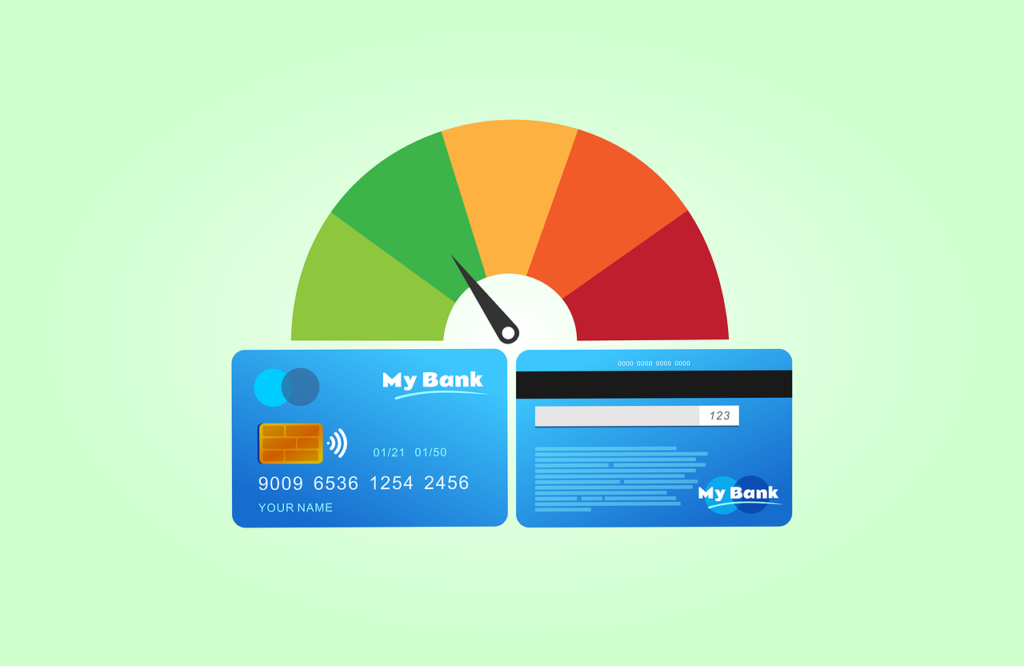It can be frustrating and discouraging to have your loan application rejected, especially if it was something you were looking forward too. If you’ve worked in business for a while, you probably know it happens to a lot of small business owners.
Knowing the reasons why lenders reject loan applications can help you improve your chances of getting approved in future. Here are seven issues that could lead to a denial of business financing, as well as some quick fixes for each issue.

Here are 7 reasons why you may have been denied business financing Click to Tweet
1. Poor Credit History
Businesses are often rejected for financing because of poor credit scores or a lack of credit history. Credit scores are used by banks and lenders to determine creditworthiness, or whether you’re likely to repay them. Poor credit scores (below 655) are a warning sign to lenders, and can result in a business loan being rejected.
Your credit score is determined by a number of factors. A recent bankruptcy, for example, could have a significant impact on your credit score. Late payments and defaults on loans are also factors. Lenders will think that you are not able to manage your finances well. This can negatively impact your reputation as a borrower.
Here are some things you can fix if a low credit score was the primary reason for your loan application being rejected.
- You must pay your debts on time or before the deadline
- Working with lenders or suppliers who report to major credit bureaus
- Report any errors to the credit bureau as soon as possible.
Some lenders will also provide financing to businesses that have low credit scores. They may also charge higher interest rates to offset the risk.
2. Poor Cash Flow
It’s important to take into account your company’s cash flow when applying for a business loan. This is in addition to your credit score. Imagine that there are any gaps or that your business has periods when revenue does not match expenses and debt repayments. Lenders may reject your application based solely on this irregularity.
The lenders know that poor cash management is the reason for many small business failures. It’s important to keep track of your company’s cash flow. Make sure there are more cash inflows than outflows (at least during most of the year). Late-paying clients can sometimes affect your cash flow. Invest in a more efficient payment collection process (e.g. investing in robust accounting tools).
3. High (or too low) credit utilization
Credit utilization is the ratio of the amount you have used to the total credit that you have available. A high credit usage rate will make lenders assume there is not enough money to cover any additional financial obligations. A low credit utilization rate may also indicate a lack of experience with debt management. This will raise a red-flag to small business lenders.
If a business is looking for financing, it should have a credit usage rate no higher than 30%. If you have a $100,000 credit limit, your credit card balance must be below $30,000.
Paying off your credit card debts can help you reduce your credit utilization rate. Closing credit card accounts will decrease your available credit, which can increase your credit utilization. Even if you have paid off your credit card in full, it’s important to keep the account as open as possible.
4. Lack of Collateral
Small businesses may be required to provide collateral by lenders, particularly banks, to secure a loan. Commercial real estate, equipment or other valuable business assets could be used as collateral. Most small businesses do not have sufficient assets to support their loan application. The result is that they are often denied business loans. If the bank does not value your assets enough, you will have a harder time qualifying for a loan.
Consider other financing options. You can use outstanding invoices from your customers to fund capital. Some lenders offer small businesses with insufficient assets unsecured lines of credit. These forms of financing can be used until you accumulate enough collateral for a larger business loan.
5. Brief Business History
Before approving a business loan application, lenders usually require that the business has been in operation for at least two years. This is because these companies have not established a sufficient credit history or profitability record, which makes it difficult for lenders to assess their ability to repay a loan.
Startups are often rejected by business lenders due to their lack of experience. They have more options than ever. Alternative lenders might offer startup loans for companies less than one year old. You may have to pay higher interest rates. It’s still a viable alternative if you need additional funding for your business but haven’t been around long enough to be eligible for larger loans.
6. Risky Industry
Some industries may be considered more risky by traditional lenders than others. Service-based businesses such as restaurants and construction, for example, are considered high-risk due to seasonality and high rates of failure. It may be difficult for CBD or gambling businesses to obtain financing from traditional lenders due to the constantly changing regulations.
It does not mean that these businesses can’t obtain business financing. You can get funding for your high-risk business from lenders who specialize in lending to companies in your field. You will not only increase your chances of being approved, but you may also get better terms.
7. Lack of documents
You will most likely not be approved for business funding if you do not submit the required documentation. These documents are proof of your creditworthiness and convince lenders that you loan application is worthy of approval. You will not be able to prove your credibility if you do not have the required documents.
Next time you apply for a loan, make sure you have a list of the documents that lenders will need. You’ll need to provide additional documents, such as:
- Credit reports
- Balance Sheets
- Profit and Loss Statements
- Cash flow projections
- Articles of incorporation
- Business contracts
It’s best to call the lender and ask what they typically require if you are unsure of what documents to gather.
Bottom line
It is not for the weak-hearted to apply for business funding. Rejections are frustrating and can occur. By understanding the most common causes of business financing rejections, you can improve your chances for approval.













Leave a Reply